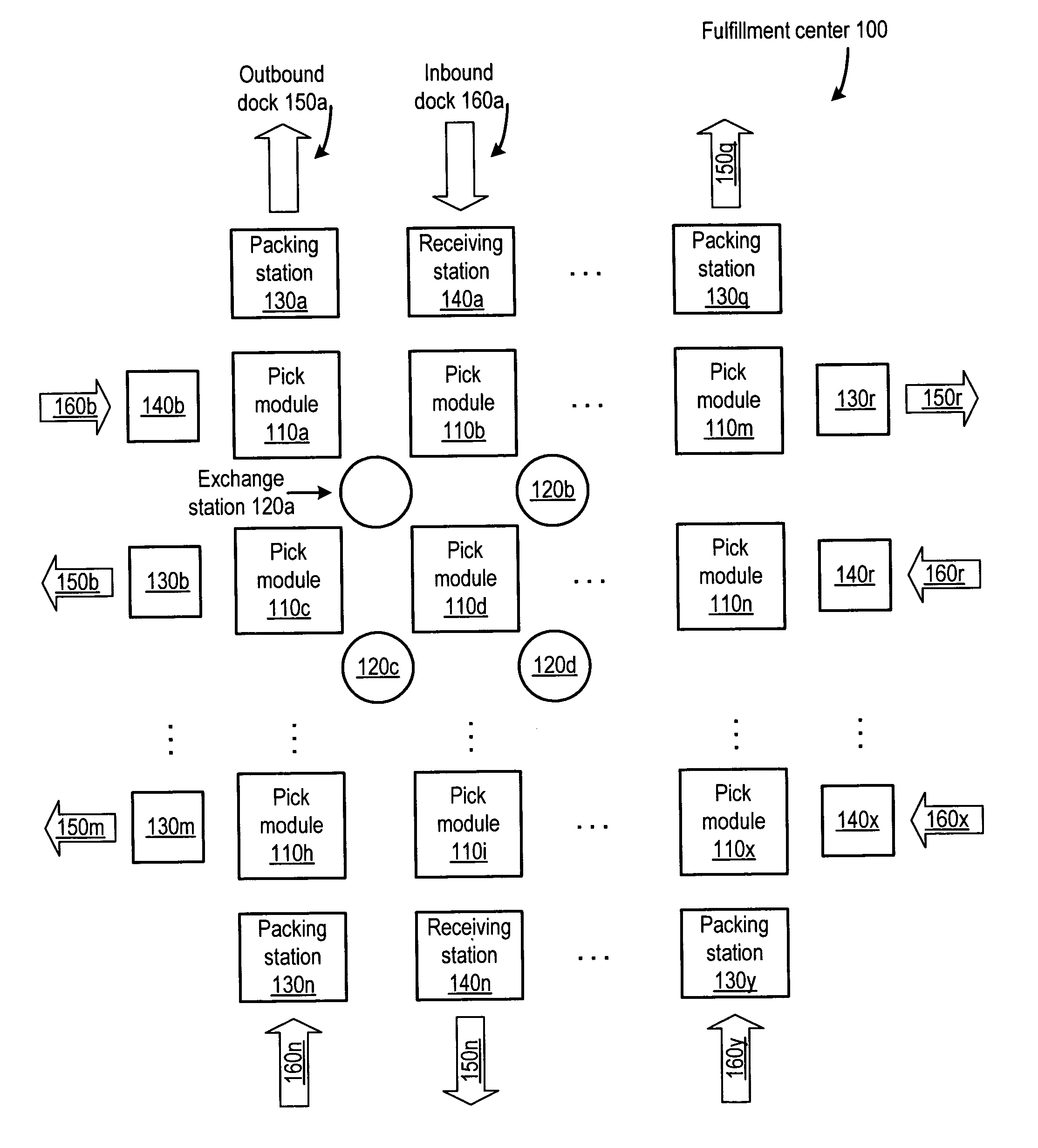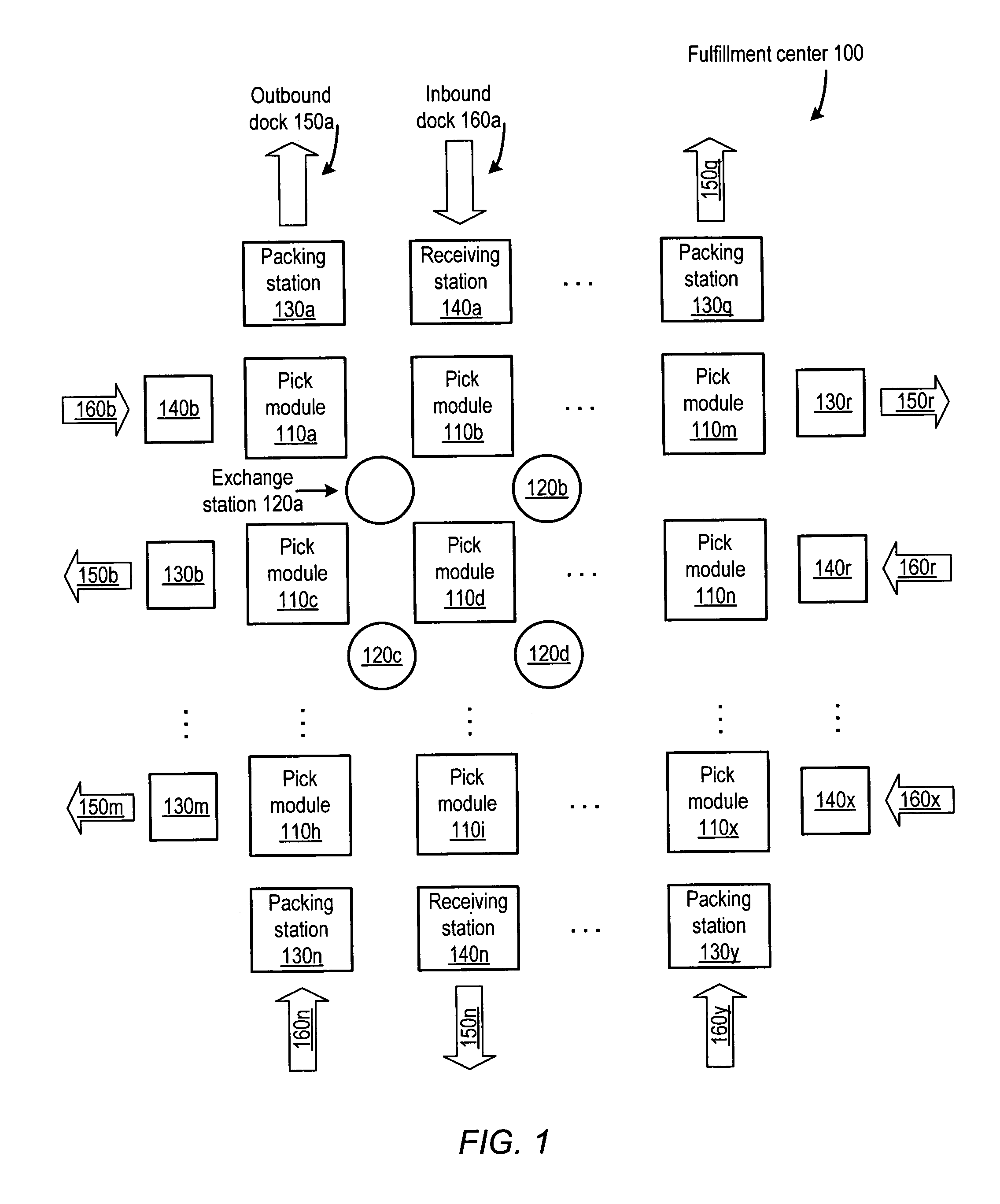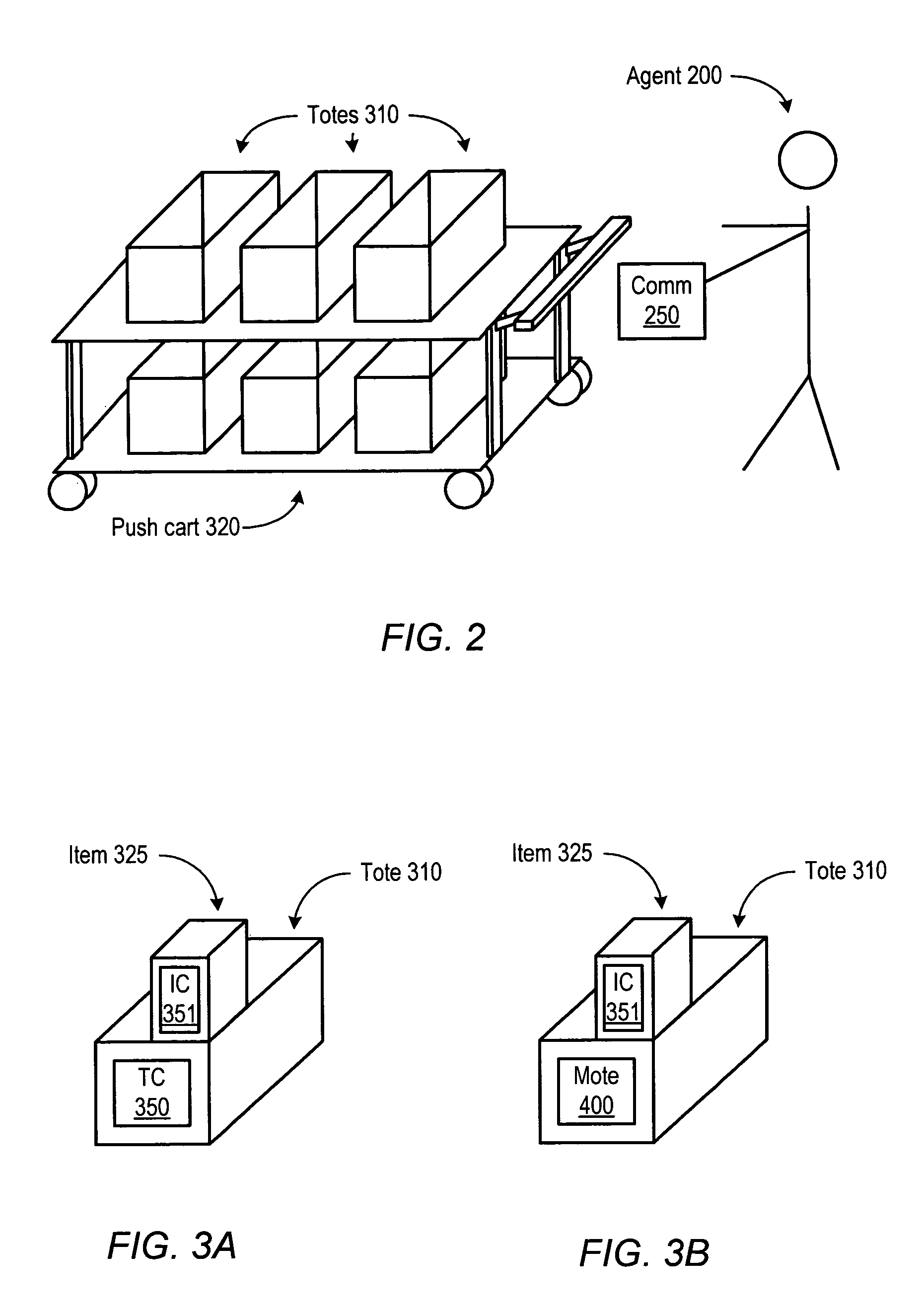Method and system for agent exchange-based materials handling
a technology of agent exchange and material handling, applied in the field of material handling systems, can solve the problems of marginally increasing the overall efficiency of the pickers involved, high inefficiency of a single employee or agent to pick every item, and laborious manual sorting, so as to achieve the effect of reducing the average distan
- Summary
- Abstract
- Description
- Claims
- Application Information
AI Technical Summary
Benefits of technology
Problems solved by technology
Method used
Image
Examples
Embodiment Construction
Introduction
[0030]As summarized above, in some embodiments agent exchange-based materials handling may improve the overall productivity of a materials handling process. Various embodiments of agent exchange-based materials handling, including various components of systems that may be configured to implement exchange-based materials handling, are described in detail below. Owing to the complexity of the disclosed system, discussion is divided into several sections to facilitate exposition. However, it is noted that embodiments of the system are not limited by the section headings or the particular order in which aspects of the system are described. Further, it is noted that in the following discussion, materials handling is described in the context of fulfillment of customer orders from a fulfillment center configured to store inventory items. However, it is intended that the terms “order fulfillment” and “fulfillment center” encompass any type of materials handling system in which m...
PUM
 Login to View More
Login to View More Abstract
Description
Claims
Application Information
 Login to View More
Login to View More - R&D
- Intellectual Property
- Life Sciences
- Materials
- Tech Scout
- Unparalleled Data Quality
- Higher Quality Content
- 60% Fewer Hallucinations
Browse by: Latest US Patents, China's latest patents, Technical Efficacy Thesaurus, Application Domain, Technology Topic, Popular Technical Reports.
© 2025 PatSnap. All rights reserved.Legal|Privacy policy|Modern Slavery Act Transparency Statement|Sitemap|About US| Contact US: help@patsnap.com



